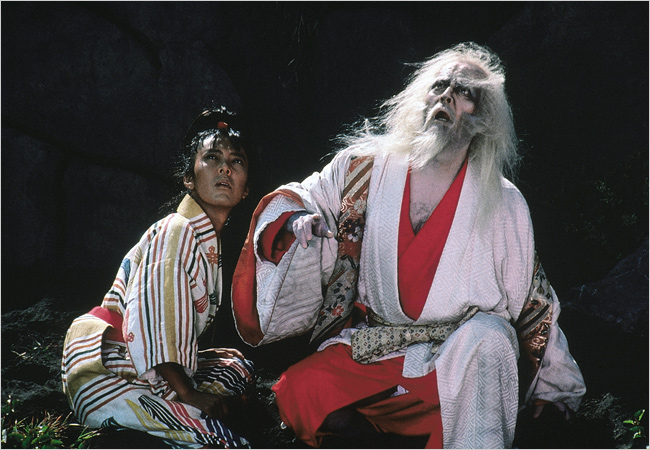
Quentin Tarantino has certainly never been kind in his appraisal of the ageing director. In 2012, in the midst of an infamous interview with Krishnan Guru-Murthy on the Django Unchained press tour, he stated that “directors are like boxers, they have their time.” A statement that, whilst harsh, is nowhere near as cutting Tarantino’s previous assertion, espoused in a televised appearance with singer Fiona Apple, that films directed by ageing directors felt like “films made by men who can’t ‘get it up’ anymore.”
Sadly, history is not often kind to the ageing director either.
Indeed, there is some truth to Tarantino’s frequent attacks on the ageing director. When one looks at the filmographies of the vast majority of great directors, there is indeed often a dip in quality during the final years of their career. An artist may well lose touch with their own era, lose their edge, or even experience a dwindling of their creative capacity as the inescapable tide of time sweeps them away.
Yet, as with most generalities, there are exceptions. As such, their very existence as exceptions to a rule make them inherently interesting, as the creative mind is often drawn to that which may be odd or unusual. Whether they represent the last film offered by their respective directors or not, these 15 films represent the glorious last gasps of creative geniuses refusing to go quietly, and doing so in a way that is glorious to witness.
15. “A Fish Called Wanda” by Charles Crichton (78 years old)
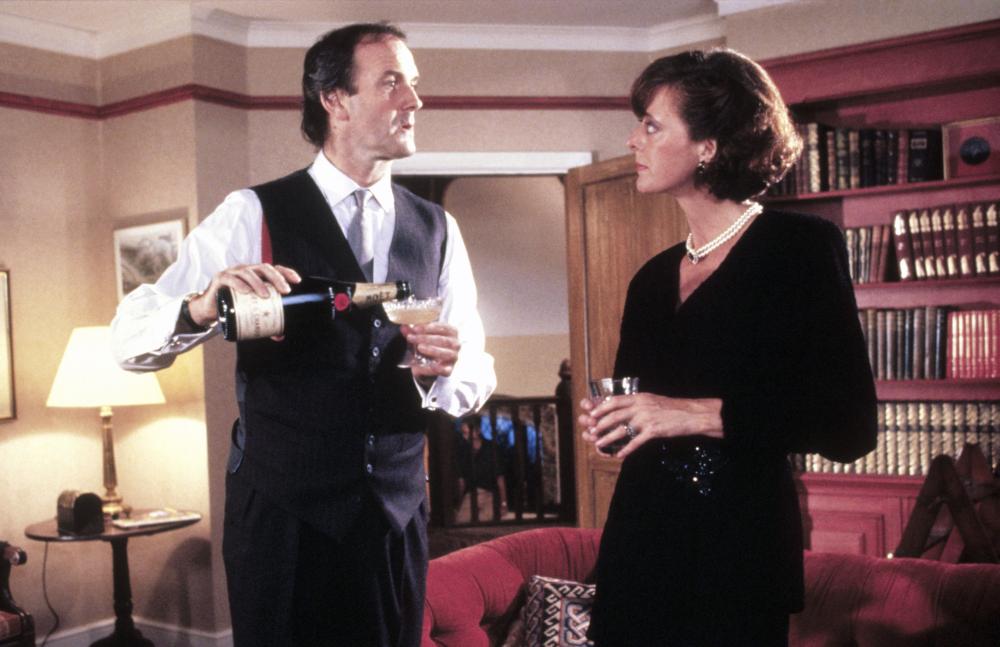
As sprightly a film as has ever been directed by a near octogenarian, we open this list with a surprisingly youthful offering. Do not let the cast of 40-somethings fool you, A Fish Called Wanda is a romantic comedy that is young at heart.
Of course, there is more than a fair share of espionage involved too. The plot is inspired. Centering around three very different men, brilliantly portrayed by Kevin Kline, Michael Palin, and John Cleese, who decide to pull off a heist together, their common thread is but one thing- they are all romantically involved with Wanda.
The remarkable thing is how the film deals with Wanda. She is never “slut shamed”, nor is she ever portrayed as intellectually vapid. Sure, she has her insecurities, but one always gets the impression that she is really the one in charge. It is, as such, an oddly feminist statement. Though the conclusion brings not one single character exactly what they expected, yet leaves the audience feeling that they have truly known the characters, and walked with them in their respective circumstances.
In other words, a fine performance for the veteran Charles Crichton.
14. “The Strange Case of Angelica” by Manoel De Oliveira (102 years old)
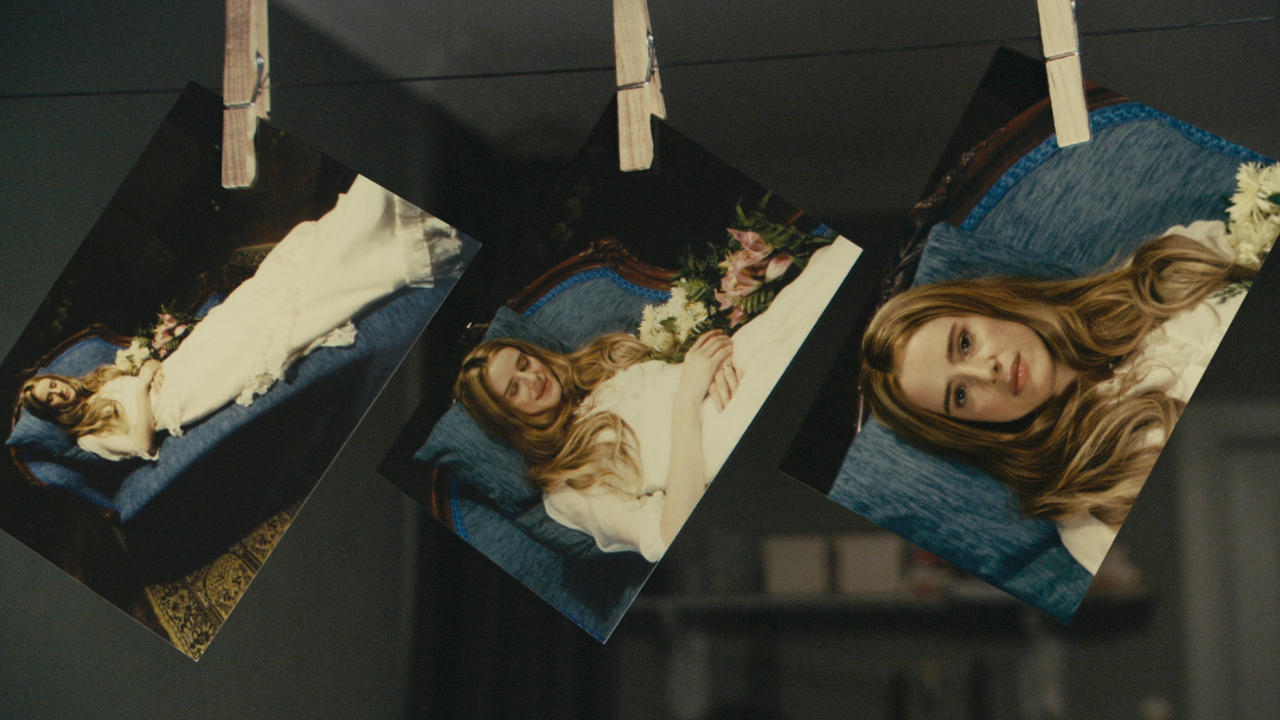
No, that is not a typo. You read the age correctly. Manoel De Oliveira was 102 years old at the time of The Strange Case of Angelica’s release. Don’t believe it? Look it up.
So, how did he do? Well, one may be happy to report that this film is stylish, distinct, and poignant.
In many ways it is a classic romantic comedy. A boy meets a girl, there is infatuation, they grow closer, fall dizzyingly in love, only to encounter setbacks. The difference? Well, the pair meet at the woman’s funeral. The setbacks? For one, the woman is dead. Yet, this is the central question of the narrative. Is anybody ever fully dead? Do we live on in spirit and memory? it certainly seems as though the film wishes to assert that one can communicate fulfillingly with those gone before us.
Death must be a tough topic for a 102 year old filmmaker to address. Yet, De Oliveira addresses it with such class and romance. Delivering scenes of startling visual beauty, such as night time flights through the city skyline, and tender bedside visits from spirits. Angelica is never truly dead to Isaac, and the film’s visuals make romantic stock of her apparitions. Soon, the whole town seems to get invested in the idealism.
The Strange Case of Angelica is a revelation from a director almost as old as the medium, who seems to have been intent on leaving a finer medium behind him than that which he had found.
13. “Family Plot” by Alfred Hitchcock (77 years old)
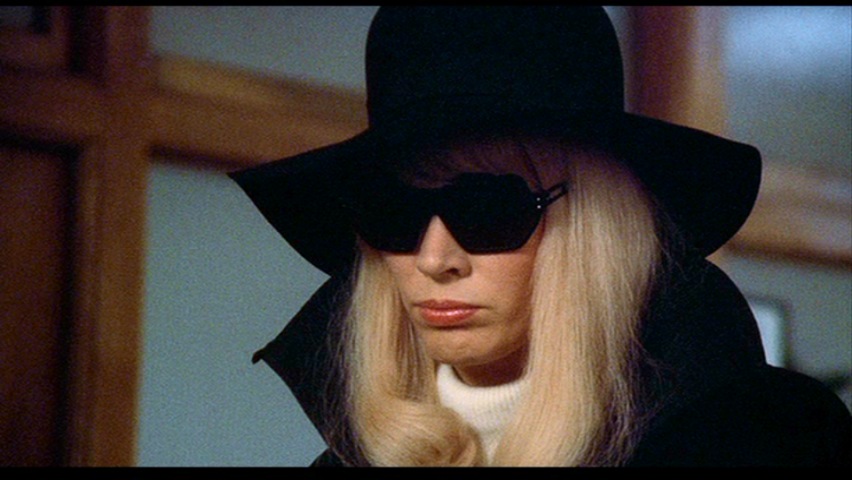
A lethal cocktail of wit and nastiness, this unashamedly camp but still nuanced final film from one of cinema’s greatest institutions, Alfred Hitchcock, has received wildly varying reviews over the years. Some say its humorous aspects are low-brow and degrade the film, to sharp contrast with the elegance of Hitchcock’s vintage work. Yet, with its shady characters, small town deals, sharp dialogue, and engaging sequences, this becomes a distinctly acute neo-noir with sense of humor and style to spare.
The film’s sense of fun abounds in great sequences. Phoney psychic Blanche’s theatrical performance makes for a great opening scene. There is a great villain reveal, and even a stellar car chase. Primarily, the film is anchored by Bruce Dern and Barbara Harris, who play Lumley and Blanche, a couple of petty thieves out to make a quick buck out of wealthy widow Julia Rainbird (a terrific Cathleen Nesbitt), lost in a quest to find her nephew.
Perhaps the film’s distinction lies in the fact that all involved seem to be having such fun with the material, cast and director alike seem to be relishing in sich black comedy and (literal) winks towards their audience.
12. “The Martian” by Ridley Scott (78 years old)

Though widely considered an actor’s movie, The Martian should be noted to be the first universal success for Ridley Scott in some time. It is certainly his most effortless. Charming, funny, sad, and visually arresting, its testament to the human spirit is evidenced by its many 2016 Oscar nominations.
The Martian tells the story of astronaut Mark Watney, who, in mid rock storm, is presumed dead by his crew whilst exploring Mars, and left for dead on the planet. Abandoned, Mark takes practical measures in order to survive until rescue, and deals with the emotional consequences that come with this. Oscar bait? Perhaps. But, it carries with it much of the sophistication that Oscar bait entails also.
Matt Damon is the epicenter of the film. His ability to evoke the nature and responses of the common man to such exceptional scenarios is key to the film’s appeal. Yet, the film is also a visual masterpiece. A technical cornucopia of great set design and cinematography set the pace and mood spectacularly. Thus, Ridley’s vision comes to life well, as both an actor’s director and visual stylist, evoking his performance in his peak period work Bladerunner. Not bad for a director resurrecting his claim to the elite of film visionaries.
11. “Gran Torino” by Clint Eastwood (79 years old)
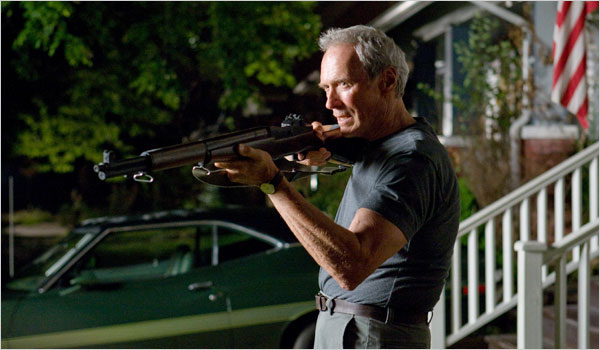
Eastwood to the extreme? Eastwood as self-parody? Or, simply an affirmation of the qualities audiences had come to embrace in Clint Eastwood over decades. Take Gran Torino as whatever you wish, but, for its director and star, it was certainly not dull.
Eastwood plays Walt- an embittered, racist caucasian in an increasingly Hmong-predominant neighbourhood of California. Having just lost his wife, and with his children and grandchildren long alienated from him, the widower is at a crossroads. But, when a young Hmong boy named Thao attempts to steal his prize Gran Torino as part of a gang initiation ritual, Walt takes it upon himself to mentor the boy, and becomes a highly unlikely hero amidst escalating gang tensions in the neighbourhood.
As such, the movie is a darkly comic biddy film. Eastwood, approaching his 80th year, retains all of the snare we have come to expect of him, and then some. He wisecracks like never before in teaching the boy life lessons, according to his cynical philosophy on life. Yet, the violence escalates. In the end, Walt’s racism gives way to a true heroism, and indeed becomes the tale of a war hero saving his own soul as well as that of another.
Not to give anything away, but the film’s ending is a first for Eastwood’s career.
10. “Carnage” by Roman Polanski (78 years old)
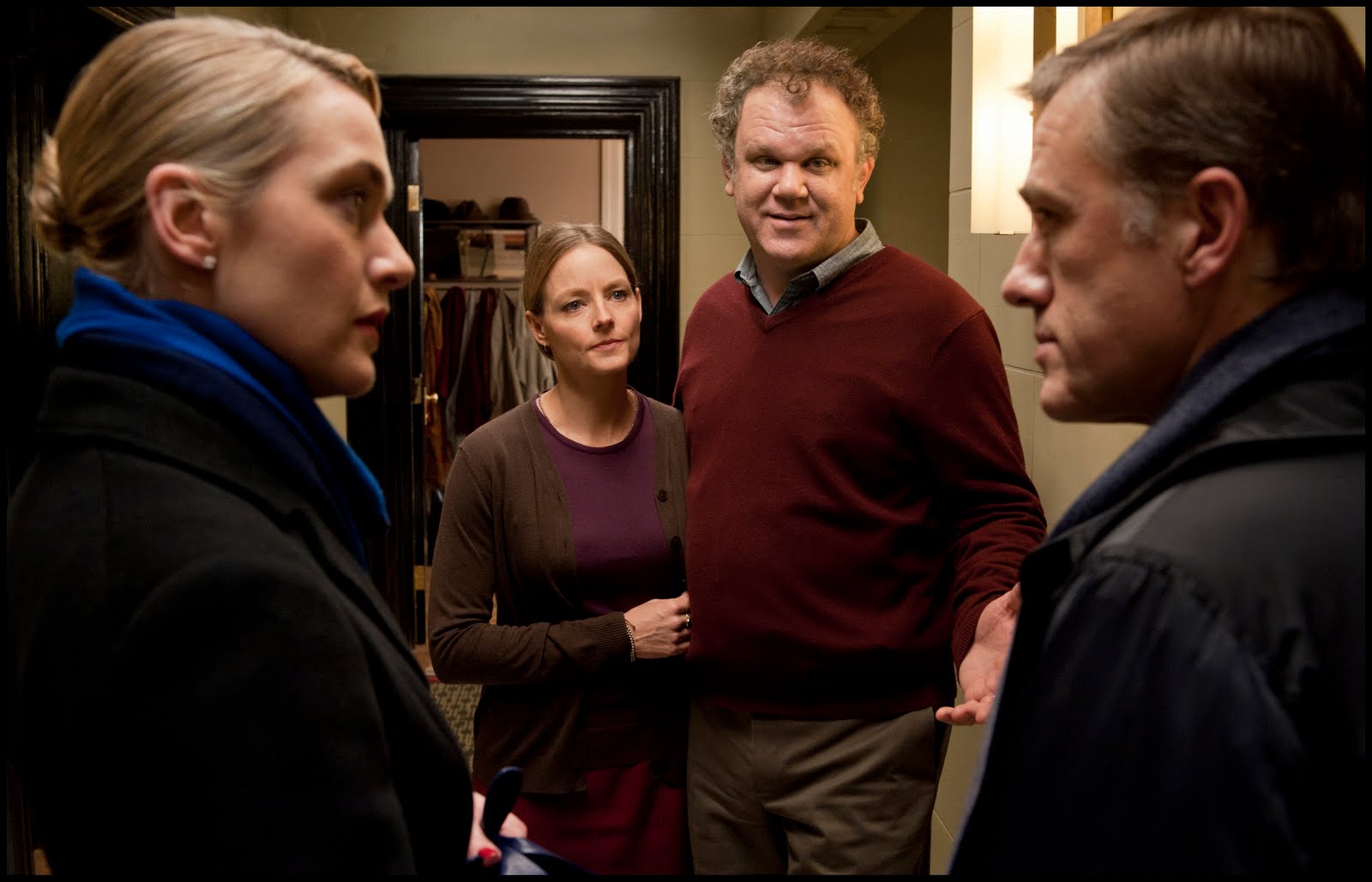
The class divide, the gender divide, fascism, and the merits of peach cobbler. Rarely have such a wide variety of debates been posited in one single film. Of course, that said, this is the only film that will ever feature Christoph Waltz, Kate Winslet, John C Reilly, and Jodie Foster alone in a single studio apartment for 75 straight minutes.
Carnage is certainly unique. based on a stage play “God of Carnage” by Yasmina Reza, it represents the first experimentation in the notion of a single setting film, a trend which he continued with “Venus in Furs”, and began five decades earlier with “Repulsion”. The plot revolves around two sets of New York parents, one upper class and the other hosting couple far more working class, who meet up to make amends following a schoolyard confrontation between their two sons.
Yet, instead of letting a traditional narrative build from there, the plot focuses entirely on dialogue based development within the claustrophobic confinement of the apartment. On the contrary, the characters are allowed to fester and envelope with remarkable efficiency until one feels that the know them intimately. Even waltz’s aloof Alan finds to time to unfold before our eyes.
The balance of power shifts, and allegiances even shift between the couples. In the end, the film makes some fairly apocalyptic statements about American society (a society Polanski was forced to flee in disgrace), and suggests that the boys may well be best left to work it out between themselves.
Whatever you take away from Carnage, these are not bad results for a movie set in a single apartment.
9. “The Dead” by John Huston (81 years old)
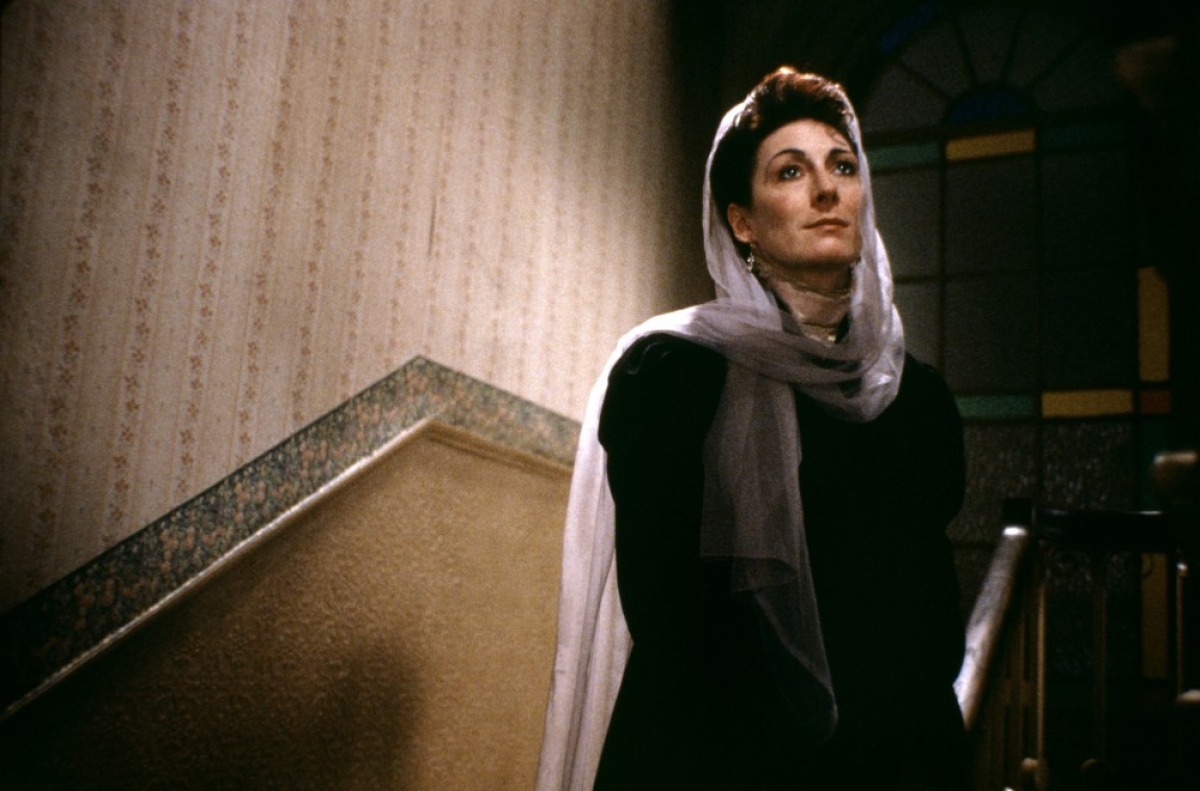
The meeting of James Joyce and John Huston was truly a crossroads between icons of two mediums. The result is typically elegant, and admirably restrained.
The moments of poignancy are subtle, with the audience expected to meet the film’s ideas half way and quietly comprehend their meaning. The plot, surrounding a social get together in Dublin at the turn of the 20th Century, lends way to a stagey chamber piece.There is a reflection on the growing of a servant girl into adulthood, arguments over a dinner table, the verbal fumblings of a pathetic drunk, and many reflections on the master class versus the servant class, a topic typically explored by lush period pieces concerning this time.
Most notably, there is a scene in which a rather dour poem is recited to the gathering, who react as though they have ingested a kind of truth serum. For some, the poem is fascinating, for others daunting and, for Angelica Huston’s Gretta, the poem is a direct attack on the life wasted by her empty marriage, and her dissatisfaction with a life spent in supposed privilege.
The statements are as bold as Joyce, and as elegantly outlined as Huston. This was John Huston’s last film, and it is a fitting one, as death and nostalgia seem to resonate from every sequence.